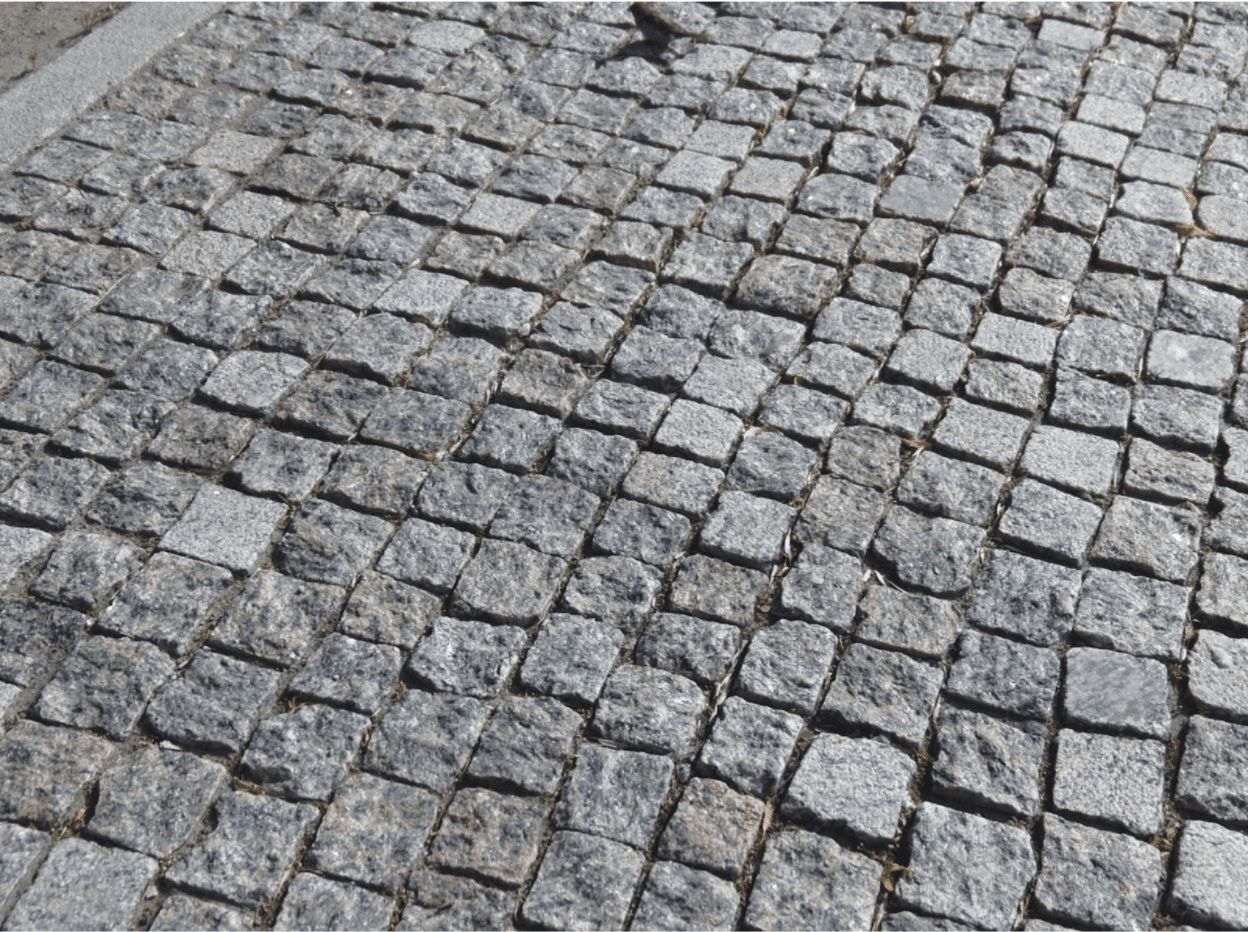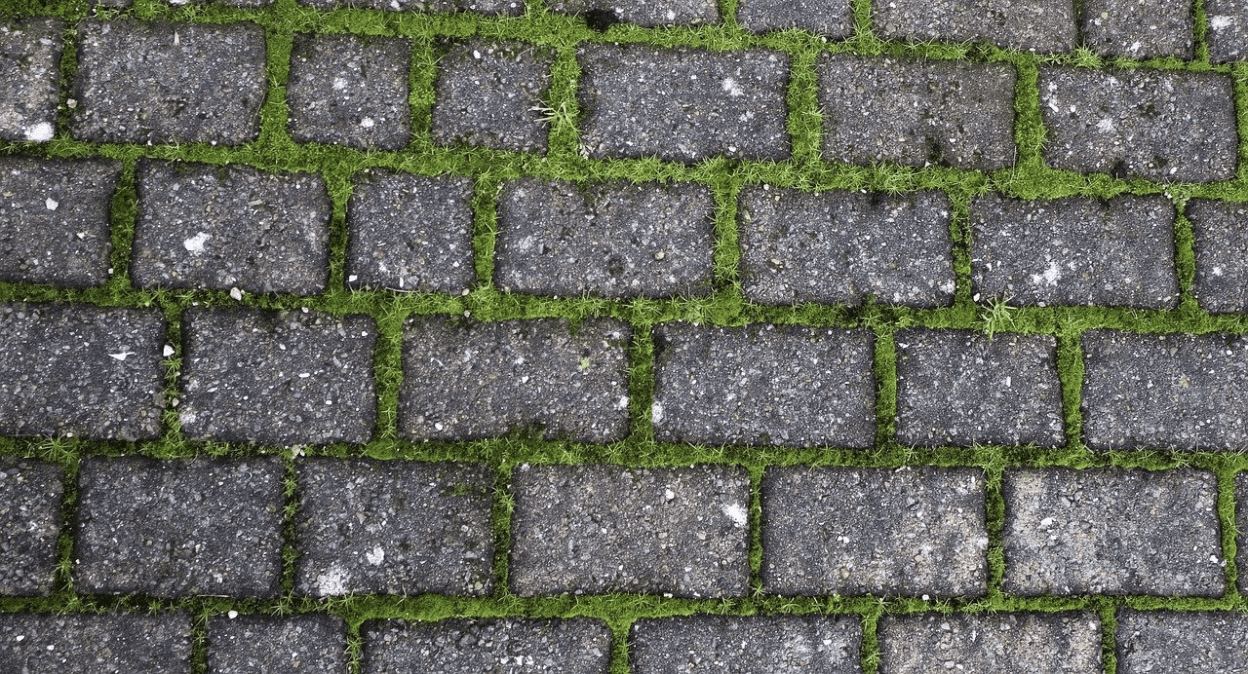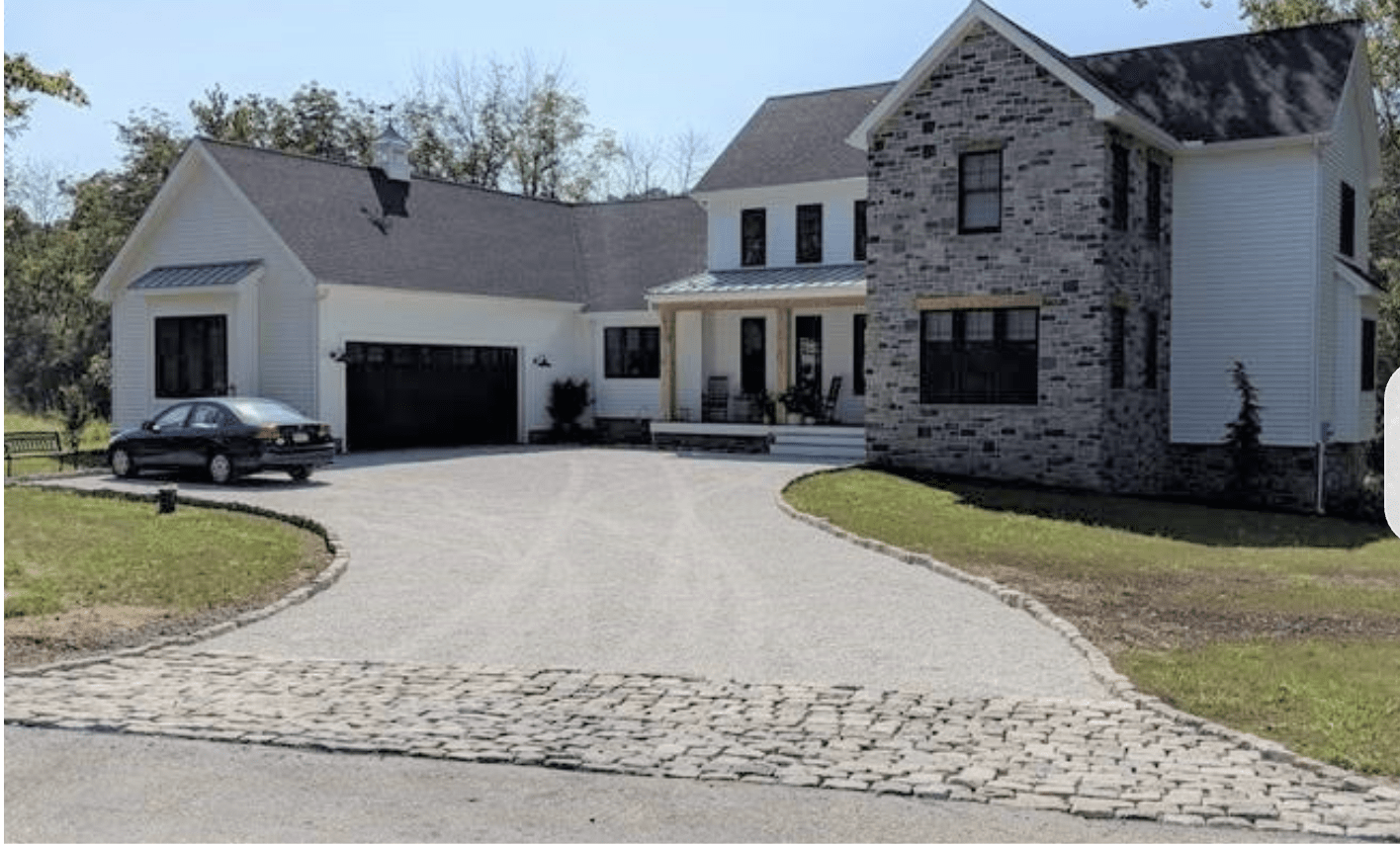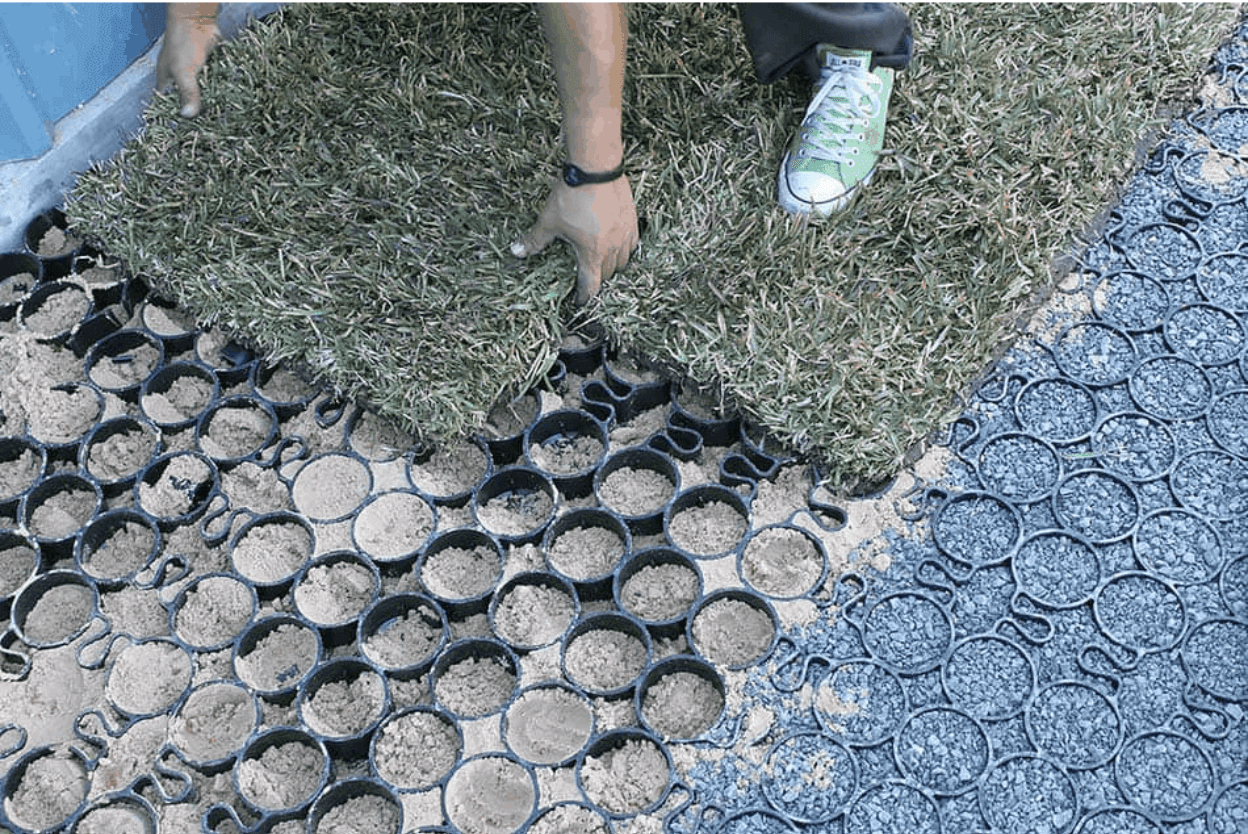Almost every driveway you see these days is built from either asphalt or concrete, but those aren’t the only two options available. Stone, for instance, is another type of material that is an excellent alternative to asphalt and concrete for a variety of reasons.

Stone offers something in terms of style, cost-effectiveness, and versatility that you’d be hard-pressed to find with asphalt or concrete. It can also be one of the lowest-maintenance driveway materials, depending on how it’s installed. But, as with all things, even stone has its drawbacks.
Stone can be problematic as a driveway material for many reasons. If you’re looking to build a new driveway, let’s take a look at a few common problems with stone as well as a superior alternative that can give you the best of both worlds.
1. Cost
The first problem with most stone driveways is cost. Stone usually refers to natural stone pavers, which are one of the most expensive types of driveway materials. The cost and labor associated with installing natural stone pavers as a driveway are high and the maintenance required is constant and expensive as well.
2. Durability
Stone doesn’t always have to refer to natural stone pavers, it can also refer to gravel, loose stones poured over a gravel base, or some other mixture of crushed rock and loose pebbles.
The main issue with any and all types of stone, however, is durability. Even professionally installed and sealed natural stone pavers aren’t all that durable. They tend to be vulnerable to temperature changes and erosion as well.
Gravel, loose stones, and other types of stones are even less durable. Smaller stones like those found in gravel are easily crushed into dust and smaller pieces. Eventually, this causes dust, mud, and bare spots that need to be refilled with more material. It doesn’t take very long for gravel and smaller stones to deteriorate rapidly.
3. Maintenance

Natural stone pavers require constant resealing if they are to remain as durable as possible. This process isn’t cheap and needs to be done usually once every 5 years, minimum.
Gravel and loose stones need to be constantly grated and replenished. Migration requires you to add more material to your driveway and grate it in order to even out bare spots and to prevent ruts from developing.
Once your gravel or loose stone driveway has developed a certain amount of dust, you’ll likely have to either replace it with fresh gravel entirely or use some type of dust mitigation like wetting it down with a water hose.
4. Permeability
Natural stone driveways are usually impermeable, meaning they need to be sloped at a certain angle to prevent pooling and make it harder for moisture to penetrate their surface.
This can lead to erosion along the sides of the driveway or even contribute to overburdening the local sewer system. Permeable driveways allow stormwater to drain directly through the driveway itself and into the soil below, as nature intended.
The problem is, most loose gravel driveways don’t facilitate the flow of water deep enough into the soil for it to drain. Driveways made from loose gravel poured over topsoil usually results in flooding if the rainfall is heavy enough.
5. Installation Time
Natural stone paver driveways take time to complete installation. Gravel driveways with a border don’t take quite as long, but can still take days to complete depending on what material is used to build the border.
A wooden or plastic border might be a quick install but a border made from individual cobblestones or other paving stones may take much longer. Loose gravel or stones are the quickest to install out of almost all driveway types, but they have constant maintenance requirements.
A Better Alternative to Stone Driveways

The best alternative to a stone driveway is one built with permeable plastic pavers. TRUEGRID, for example, makes a line of various paving products designed to outmatch and outperform stone, gravel, asphalt, and concrete at just about every turn.
Compared to natural stone pavers, TRUEGRID PRO LITE and TRUEGRID PRO PLUS pavers perform better in terms of durability, maintenance requirements, permeability, eco-friendliness, installation time, and affordability.
Made from 100%-recycled plastic, TRUEGRID pavers are durable enough to last up to 60 years with almost no maintenance. They are nearly impervious to rain, wind, snow, heat, and traffic of all types. They are 98%-permeable and can handle even the heaviest of rains without flooding, due to the fact that they are laid over a 8-inch gravel sub-base which allows for easy, unimpeded drainage.

For loose gravel, you are much better off stabilizing it with TRUEGRID pavers. The installation process can be completed in as little as one day, requiring only a basic excavator and a heavy roller to complete.
The pavers themselves snap together like LEGO blocks and are held firmly in place by your gravel or stone of choice, once it’s been compacted into the surface of the empty cells.
Let TRUEGRID Give You the Best of Both Worlds
If you want a stone driveway without any of the hassle, maintenance, or durability concerns, TRUEGRID permeable plastic pavers will help you craft a stone driveway that lasts up to 60 years and costs almost nothing to maintain.
Eliminate driveway flooding and rutting forever with a clean-cut, beautiful permeable paver driveway from TRUEGRID today. Call TRUEGRID today to get in touch with a pavement specialist for a free quote.



